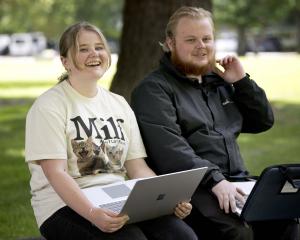People "in crisis" are less likely to end up in hospital or a jail cell following a mental health emergency if emergency services work alongside each other, a new study has found.
Lead author and University of Otago (Wellington) psychological medicine Associate Prof Susanna Every-Palmer studied the first co-response team made up of police, ambulance and mental health staff between March 2020 and March 2021, in Wellington, and found emergency mental health callouts were resolved faster and with better outcomes.
"People seen by the co-response team were more likely to receive support in the community and 30% less likely to wait long hours in the emergency department for a mental health assessment.
"They did better over the next month as well, being less likely to attend an emergency department or be admitted to hospital."
Prof Every-Palmer said it was exciting to see the collaborative model improving outcomes.
"Innovative approaches like the co-response team are much needed for people experiencing mental health crises.
"Over the last few years, reporting data has shown steep increases in demand, which has put emergency services under pressure."
Calls to police for mental health related events had increased by 60% over the past five years.
She said co-response teams had been trialled with a view to reducing the risk of police, ambulance and emergency department capabilities being overwhelmed and the person in crisis becoming more distressed or being inappropriately detained in police cells.
"It involved joint decision-making and multi-agency collaboration, which helped first responders provide a more integrated and nuanced response to emergency call-outs involving mental health crises."
New Zealand Police iwi and community assistant commissioner Chris de Wattignar said the co-response team was able to use the respective skills of each of their three professions to assess the situation, manage any acute risks, assess physical health needs and undertake mental health assessments.
"The trial has delivered a marked improvement in outcomes.
"The co-response team can formulate a management plan and involve the person and their family in decision making wherever possible.
"Sometimes the emergency can be resolved on site and sometimes the person requires transport to another location, such as a community mental health base for treatment.
"If the person remains at home, management plans might include follow-up by their general practice, a community mental health team, a counsellor, or the crisis team."
He said police and their partners were in continuing discussions about the success of the trial and the potential to extend it to further areas in future.












